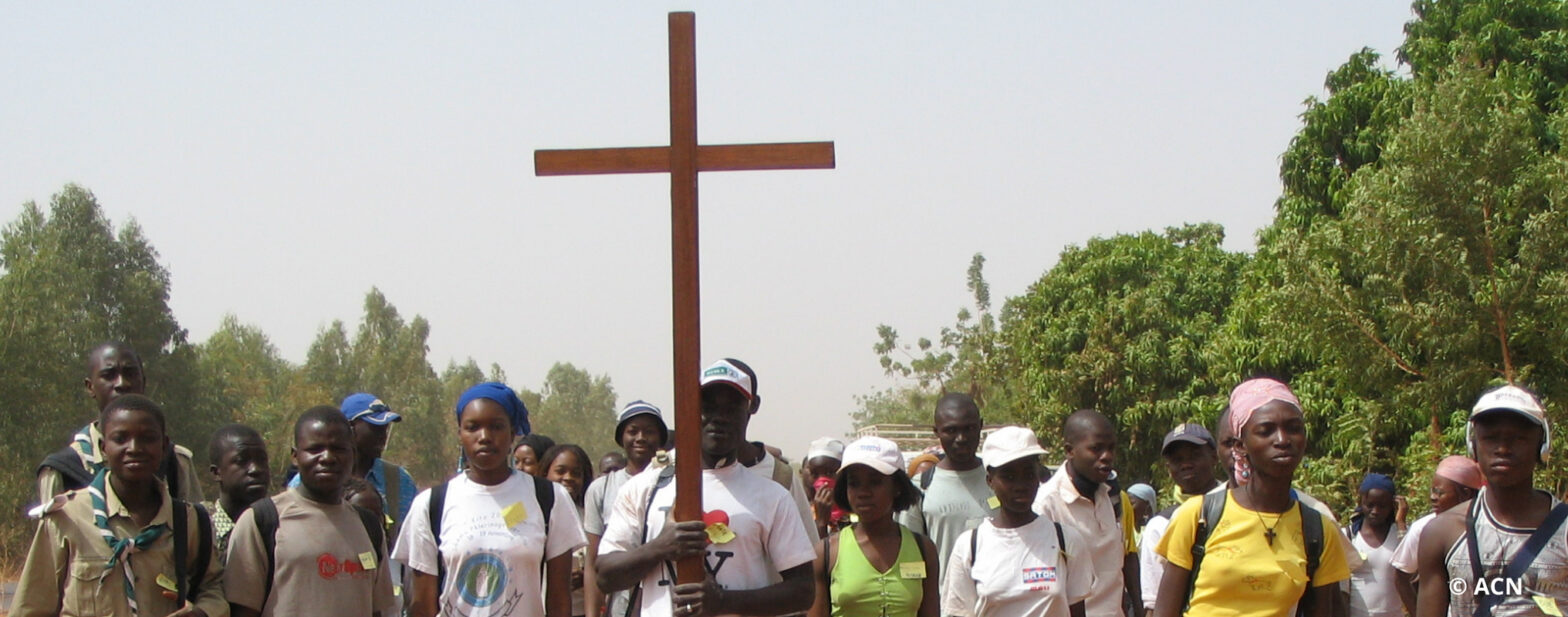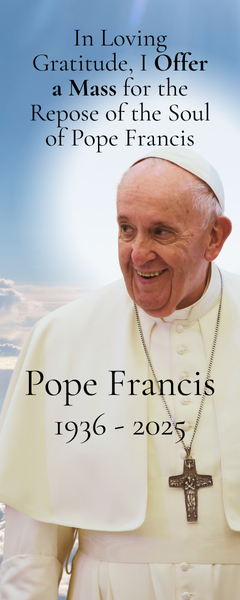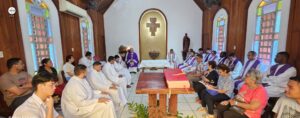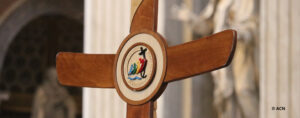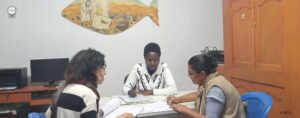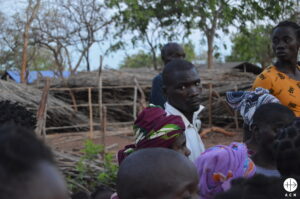Twenty twenty-five could be a difficult year for Catholic schools in Mali. According to Aid to the Church in Need (ACN)’s Malian project partners, state subsidies will cease from the beginning of the 2025/2026 academic year, which will plunge these schools into an uncertain future. Mali is a country which is increasingly suffering the influence of fundamentalism, and most actors and partners in its Catholic education system emphasize the important role Catholic schools play in development and interreligious dialogue, and ultimately, the preservation of peace.
“We really need support to save our schools,” says a Malian project partner, who prefers to remain anonymous, to Aid to the Church in Need (ACN), during a conversation with the charity. The landlocked country of Mali had recently announced that the 80 percent subsidy for the salaries of teachers in Catholic schools would be dropped at the start of the 2024/2025 academic year—a move which, after negotiations between the two parties, has now been postponed to the start of the 2025/2026 academic year.
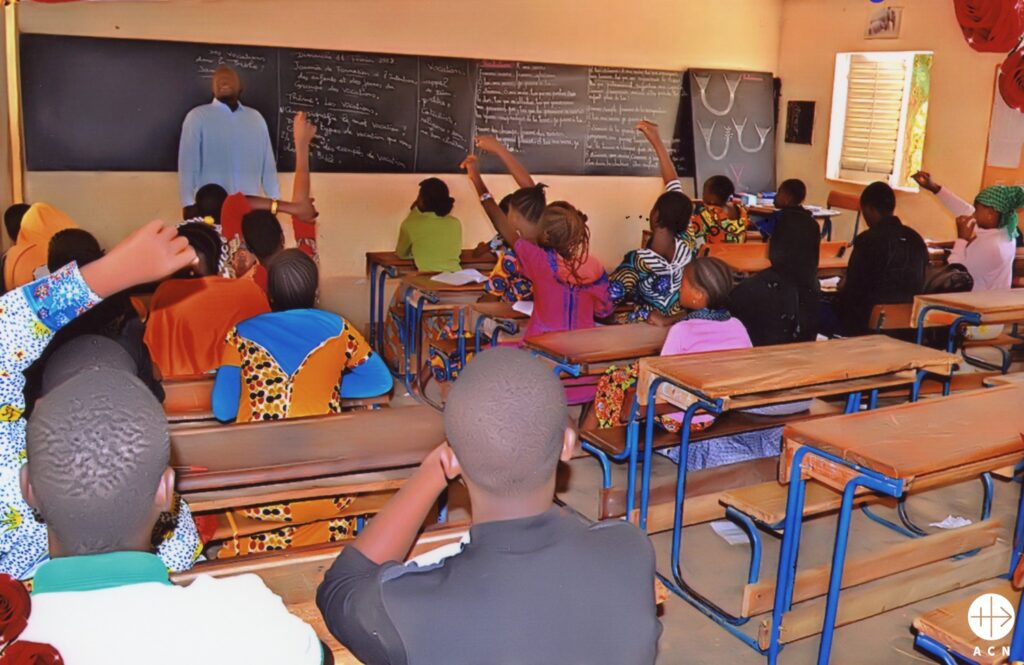
Since 2012, the very poor and majority Muslim country has been experiencing an influx of fundamentalists and terrorists, which, among other things, is threatening the peaceful coexistence of religions. Yet “what is happening in our schools is a genuine chance for Christian-Muslim dialogue, for friendships and the building of strong and solid brotherly relationships between Malian citizens,” reports the project partner. This Christian-Muslim dialogue has decisive significance for Mali: “Since 2012, Mali has found itself in a socio-political and security crisis. The Catholic Church is trying at all levels, above all in education, to make its contribution towards the restoration of peace, reconciliation, and coexistence.”
“In fact, 80 percent of the children in our schools are Muslims, while Christians make up only 3 percent of Mali’s population. Muslims value Catholic schools highly because of the quality of the teaching, which offers holistic human formation,” said the project partner.
Another one of ACN’s project partners, who likewise wishes to remain anonymous, confirms this: “In our schools—from primary school onwards—we raise awareness about the promotion of peace, respect, and the acceptance of others.” Because of this contribution to the formation of Malian citizens by the Catholic education system, there has existed since 1972 an agreement between the Bishops’ Conference of Mali and the Malian government. The agreement outlines that the state subsidizes the salaries of teachers while the Church takes on, among other things, the management, the buildings, the social security contributions, and the leadership of the schools. “However, given the economic situation, which is partly to do with the security crisis and many challenges, the state has, for some years already, had difficulty in fulfilling its responsibilities. From year to year, the debts have increased. The diocese tried to cover this through bank loans until it was no longer possible,” he laments.
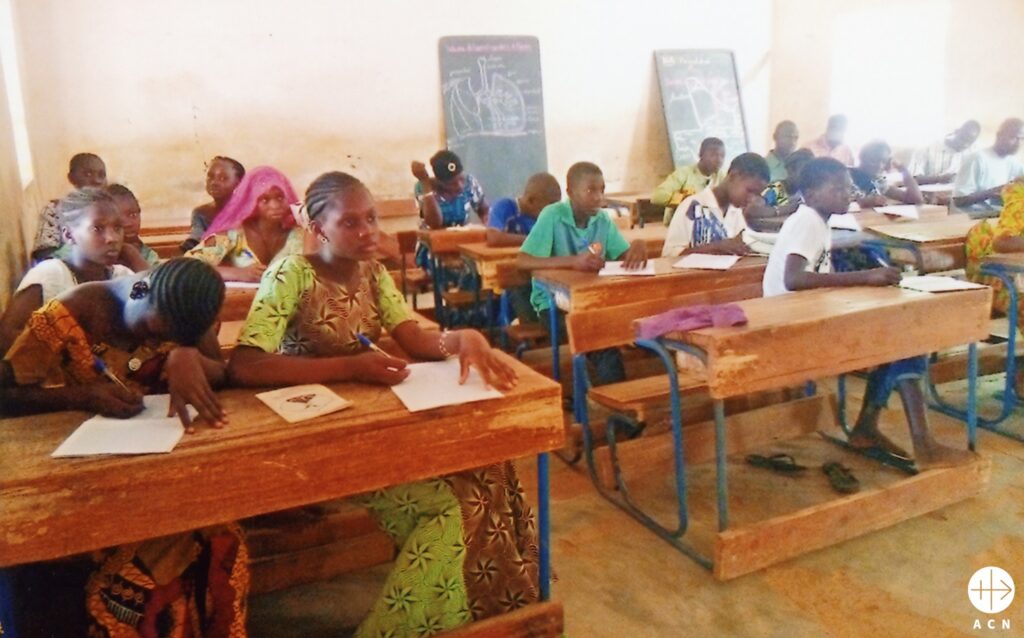
ACN’s two project partners are worried. “We are completely in the dark and our big question is: what will happen at the end of the current academic year? Have we got to let the teachers go? What could we do as an alternative, to continue our educational mission in the country? We are asking the Lord to give us clarity about the decisions which we must make, to continue to follow his call in this difficult context.” In the face of the challenges, they call for prayer, so that a solution may be found for the future. “The Church in Mali needs support in this struggle surrounding the formation of young people and the building of a peaceful world. Please pray for this intention!”
In 2024, ACN supported, among other things, the formation of diocesan and parish pastors in Catholic schools in Mali. To promote peace and interreligious dialogue in the country, the charity is also contributing to the construction of a university centre for the Islamic-Christian Training Institute (Institut de Formation Islamo-Chrétienne – I.F.I.C.).

